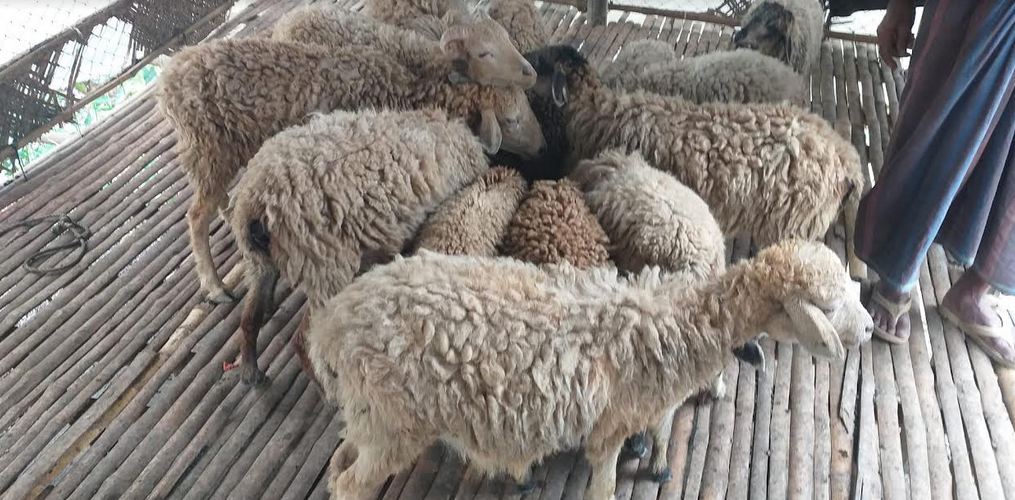
RAJSHAHI, Sept 3, 2024 (BSS)- Mita Mormu, 20, an undergraduate student at
Kakonhat Degree College under Godagari upazila in the district, has found the path of generating income through lamb rearing.
She said sheep farming has a vital role towards women empowerment and poverty reduction at the grassroots. Many of her co-villager students have attained success through sheep farming, she added.
Anandi Saren, 19, has become almost self-reliant through her household-based sheep farming besides contributing to her family and the society as a whole.
After getting one sheep as donation on voluntary basis in 2015, she enhanced the number to 11 at present by dint of her much attentiveness and devotion to the sheep rearing venture.
An undergraduate class student of Kakonhat Degree College, she had filled up her form for HSC Examination in 2023 with the money that she earned after selling two sheep.
Anandi Saren, daughter of Mikhail Saren in Sundarpur village of Godagari
upazila in the district, has elaborated her success through her efficiency in the micro-level venture, while talking to BSS on Monday.
She said the single lamb was her lifeline for taking the poverty-prone family to a stable position. But her initial stage was not happy as many of her neighbors criticized the sheep farming initiative.
Anandi said the sheep farming has eradicated her poverty and enhanced her
dignity in the society. She gets money, meat and milk from it regularly.
A class-six student of Nobai Bottola Mission High School in Godagari upazila, Shefali Saren is seen very much devoted to the rearing since she was given two sheep in 2020.
Like them, 145 ethnic minority female students were given 145 sheep in
Godagari, Tanore and Chapainawabganj sadar upazilas since 2017 with the main thrust of facilitating them to continue their respective institutional learning through the sheep rearing income.
Jahangir Alam Khan, a development activist, said the incidence of child
marriage among the ethnic minority girls is comparatively high because of
their dropout from school due to financial constraint.
He said they have given sheep among the students so that they can improve
their living and livelihood condition through the farming.
Motivating and inspiring the landless, small and low-income people to attain their self-reliance through sheep farming is another motto of the initiative.
Professor Jalal Uddin Sarder of the Department of Veterinary and Animal
Sciences in Rajshahi University (RU) said there is no protein-value
difference between the meat of sheep and goat or cattle.
Even, lamb meat is enriched with more protein in comparison to goat and
cattle.
Wide-ranging promotion of commercial sheep farming can contribute to increase woolen fiber production and produce more meat and milk to meet the country's nutritional demand.
He said sheep are more resistant to disease than other domestic animals,
adding the household-based sheep farming, after using modern methods and
technologies, can be a vital means of meeting up the nutritional demand in the region.
The issue of improvement and conservation of native sheep in society-based farms should be given priority for the greater interest of poverty reduction and self-employment through the best use of enormous opportunities in the sector.
Kolyan Kumar Fouzder, former divisional deputy director of the Department of Livestock Services (DLS), said commercial sheep farming, after using of modern methods and technologies, can be a vital means of meeting up the nutritional demand as well as producing valuable wool to help for developing the wool-based textile in the region.
"Rapid economic growth of the region could be achieved through proper use and maintenance of livestock resources," he said, adding that the issue of improvement and conservation of native sheep in community-based and
commercial farms should be given priority for poverty reduction and creating employment opportunities also.
He also said the scientists of DLS and Bangladesh Livestock Research
Institute (BLRI) have already developed and produced different types of
woolen fabrics by using 30 percent sheep produced wool, 30 percent jute and 40 percent cotton.